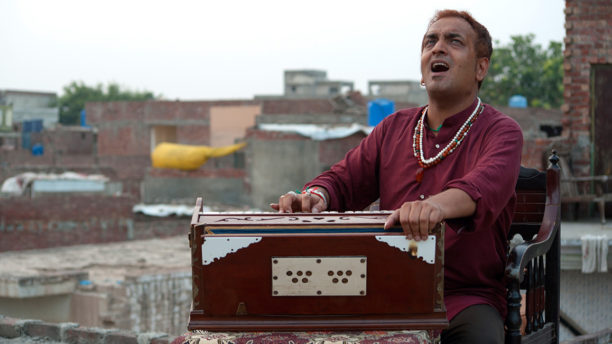 There is a bittersweet bit of irony at play in the fact that Sharmeen Obaid Chinoy’s Academy-award winning short documentary film A Girl in the River: The Price of Forgiveness is on the schedule at LIFF2016. I watched it the same day I heard about the death of Pakistani internet sensation Qandeel Baloch (allegedly an honour killing at the hands of her brother).
There is a bittersweet bit of irony at play in the fact that Sharmeen Obaid Chinoy’s Academy-award winning short documentary film A Girl in the River: The Price of Forgiveness is on the schedule at LIFF2016. I watched it the same day I heard about the death of Pakistani internet sensation Qandeel Baloch (allegedly an honour killing at the hands of her brother).
A Girl in the River traces the case of the attempted honour killing of a girl at the hands of her father and uncle. Each year, the film tells us, at least 1000 Pakistani women are killed by family members who deem that they have sullied the family “izzat” or honour in some way. Saba’s “crime” was to run away and marry – in fact, to marry the man that her own family had arranged her marriage with, a marriage they decided to break off when Saba’s uncle objected on grounds that the groom’s family status was below the level of that of the bride’s. Saba was shot, stuffed into a bag, and thrown in the river. That she managed to survive is a miracle in itself. That her father and uncle were clearly the perpetrators of the crime is obvious – they admit to their actions, justified, of course by Saba’s attack on their honour.
The film is a fascinating and heartbreaking look at a system which pits tradition against modernity, at varying interpretations of Islaam, and at community pressures which come into play – it turns out that in the cases of honour killings, perpetrators may be acquitted and released if close family members of the victim forgive them. Saba, having survived, must be the one to decide if she will forgive her father and uncle and allow them to go free.

Obaid-Chinoy’s documentary feature Song of Lahore is about honour of a different kind. Lahore has been a major South Asian cultural centure for well over a thousand years. And the Pakistani film industry during the years that Zulfaqir Ali Bhutto was thriving, and providing work for many of Pakistan’s traditionally trained musicians. The military coup staged by General Zia in 1977 changed all that – and the establishment of sharia law and the increasing islamization of the state saw the decline and virtual destruction of the film industry and the musicians it employed. Song of Lahore traces the revival of this rich musical culture by looking at the musicians who were most affected by it, as they share their memories and their music with a younger generation who have no idea of what they have been denied.
One of the challenges of returning to the musical fold, of course, is that the destruction of the film industry also resulted in the destruction of the audience – and these musicians respond in the most creative way possible to begin to rebuild an audience, knowing that the younger generation is more interested in western beats and instruments. They decide to make their audience a global one, incorporation Western musical principles into their own traditional one, writing new compositions that speak to traditional lovers of music, as well as to a newer, global one.
The situation is not totally rosy, however; the musicians describe playing in soundproof rooms, in keeping their status as musicians from their neighbours, lest they be seen as low-lifes; their re-interpretation of Dave Brubeck’s jazz classic “Take Five” is tempered with the news that with the arrival of the Taliban in Pakistan, musicians are being targetted for reprisal – you only have to look at the most recent case, the shooting of Sufi singer Amjad Sabri last month, to understand that music in Pakistans remains a fragile, risky business.
Song of Lahore’s most fascinating moments, however, occur once the Sachal ensemble comes to the attention of jazz great Wynton Marsalis, who invites them to perform with his band in New York. The joys of being given such a great opporunity give way to the tensions of learning, and quickly, how to adapt to a Western working style – and to have Western musicians adapt to Pakistani ways of working, as well. The result is a remarkable concert experience, and, for the Sachal ensemble, a great feeling of honour.








